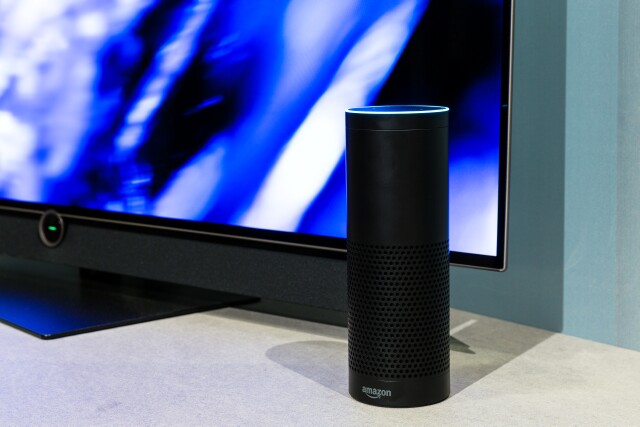What Will Be the Tipping Point for ITV?

After decades of trial ventures that failed to be both technically sound and consumer-friendly enough for national success, it looks like interactive TV is finally ready for public consumption. More than three-quarters of all U.S. television households have smart TV sets or TV-connected devices (sticks, plug-ins or set-top boxes) with the ability to handle interactive services or applications. Consumer viewing through smart sets and devices continues to be on the rise, now above 10 billion hours of content and apps per month, according to Nielsen data released earlier this spring. The operating systems within smart sets and devices have been made upgradable to deploy new services. For all that functionality, what may be the tipping point for a mass interactive marketplace is the fast-surging number of sets and devices with Alexa, Google Assistant, Siri and other artificial intelligence-powered voice features allowing users to control what's on with their voice as well as with their remote control.
Now, at the midway point of 2019, the big question looming over ITV has, for many television industry executives, moved from "Will it ever happen?" to "How quickly will it flourish?" At a pair of recent industry conferences, the consensus was clear. "It's early days for interactive," declared Dan Zimmer, Amazon Fire TV's Vice President of Content Programming and Advertising, during an early session of the annual Over The Top Video Executive Summit. "We're looking at a lot of uses."
"Everyone's experimenting right now," added Peter Naylor, Senior Vice President of Advertising Sales at Hulu. "We're at the ground floor of a big skyscraper. We'll see through the data and (learn whether) this is the next big thing, or the next big 3-D," he noted during his Video Advertising Summit keynote interview.
ITV already has a many revenue-generating opportunities:
- Interactive content, through which the viewer dictates the direction or storyline of what they're watching. Netflix is making a big commitment here, following up the much-buzzed-about Bandersnatch episode of Black Mirror with You Vs Wild, an unscripted series that drew 26 million users within a month of its mid-April premiere. YouTube will launch at least one interactive series this fall and has hired an executive to develop and oversee a variety of ITV projects, including live events.
- Interactive advertising/commerce, which allows consumers to order products or services while ads play, or request more information about the product/service showcased on-screen. Hulu expects to incorporate this feature in several ways this October, according to Naylor. Two examples are pause ads, where commercials pop up when someone pauses a program, and binge ads, giving viewers who watch several episodes of a series at once a break. "Users have told us they like the experience," Naylor noted. "We're all about putting the viewer first; giving them choice and control."
- Interactive gaming, offering a variety of video games in which users control the action with their voices, their remotes or joystick-centric controllers, eliminating the need for using a large console. At least two game ventures -- Apple Arcade and Stadia from Google -- will debut this fall via smart sets and devices.
- Interactive linkage to other home appliances, giving viewers the ability to monitor or deploy other features in their homes, from lights and room temperature to front doorbells. Hisense's new Android TV-powered sets, introduced for sale last month, allow viewers to raise or lower air conditioning with a Google Assistant voice command.
Both Amazon's Zimmer and Hulu's Naylor believe interactive advertising and commerce options will quickly come together.
"We do feel there's an opportunity (via) Alexa to give people the ability to order products with a voice-enhanced experience," Zimmer noted.
As for the proliferation of choose-your-own-path and other interactive scripted or unscripted interactive formats, Naylor anticipates "a long, slow climb." When Hulu decides to enter this arena, "You'll see a (gradual effort), not a cannonball," he said.
On the other hand, Walmart intends to make a double-barreled ITV splash by this fall. When Vudu, the retailer's video-on-demand service (distributed through most smart TV set models and connected devices) starts offering first-run content, "shoppable" commercials will be introduced. During specific product messages, Walmart customers will be invited to order that product by remote through a pop-up overlay, and automatically add that item to their current shopping cart for pickup or home delivery later on.
Vudu's original program push begins later this month with the debut of Mr. Mom, an MGM-produced series based on the hit movie. A few months later, interactive series will be added to the lineup, provided by Eko, the content venture Walmart invested $250 million in last fall.
Photo credit: Loewe Technolgies/Unsplash
Click the social buttons above or below to share this story with your friends and colleagues.
The opinions and points of view expressed in this content are exclusively the views of the author and/or subject(s) and do not necessarily represent the views of MediaVillage.com/MyersBizNet, Inc. management or associated writers.


